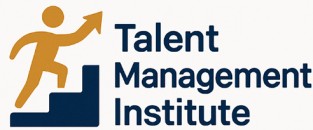
Understanding nucleus talent management
What makes nucleus talent management unique?
Nucleus talent management, often referred to as the nucleus talent matrix, integrates essential elements of hiring, development, and performance reviews into one coherent system. This approach is a game changer for organizations aiming for long term success and comprehensive talent management.
The core principles of nucleus talent management
Firstly, it places a strong emphasis on enhancing the employee experience. Whether you're a startup in Los Angeles or a multi-national corporation, the fundamental goal remains the same: to attract, develop, and retain the best talent.
People at the heart of the process
One standout feature is its people-centric approach. In any organization, employees are the cornerstone of success. Nucleus talent management not only understands this but also exemplifies it by creating structures that support career paths and development.
The role of technology
Technology plays a pivotal role. From HRTech innovations to the latest in artificial intelligence, nucleus talent management leverages technology to streamline processes, provide valuable insights, and drive results. It's not just about having the tools; it's about using them effectively to manage human capital.
Case study: A practical example
Consider a company in Los Angeles that implemented nucleus talent management software. Within the first year, they saw a 25% reduction in turnover rates. This wasn't just about the software—it was a reflection of the comprehensive talent management strategy adopted by the company.
Getting started with nucleus talent management
If you’re convinced and ready to enhance your talent strategies, check out this guide on how to unlock seamless access for employees and managers.
The role of technology in nucleus talent management
The role of tech in transforming talent management
Technology is doing more than just streamlining processes; it's changing the way we perceive and manage talent. For a company looking to be ahead in the game, understanding the latest tech trends is crucial. Consider this: According to a report by Deloitte, over 70% of organizations say they are currently undergoing or planning a digital HR transformation. This shift isn't just a phase – it's setting the tone for the future of human capital management.
One standout aspect of technology in talent management is artificial intelligence (AI). AI isn't just a buzzword; it's a game-changer. Take IBM's Watson, for instance. Watson's Talent Frameworks help organizations improve hiring processes by predicting candidates' success based on past data. It's like having a crystal ball, but better.
Another fascinating innovation is the rise of talent management software. These platforms, like Infor HCM, provide a comprehensive matrix of solutions that cover everything from recruitment to employee performance reviews. According to Gartner, HR tech spending is predicted to surpass $35 billion by 2025. Companies such as Nucleus Talent in Los Angeles are leveraging these platforms to gain a competitive edge.
But it’s not just about big corporations. Smaller firms are reaping the benefits too. With the advent of cloud-based management software, even startups can afford robust talent management systems. Companies using comprehensive talent management strategies report up to 26% higher revenue per employee, according to a study by Bersin by Deloitte.
This technological shift also means better employee experiences. Remember when onboarding was a tedious process? Now, tools such as chatbots guide new hires through their first days, making them feel welcome and reducing administrative burdens. A survey by PwC showed that 80% of employees in tech-centered firms feel more engaged at work because of improved digital resources.
For real-life success stories, look no further than ClearCompany. Their approach to leveraging technology in HR has not only revolutionized their hiring processes but also their overall employee experience. This Boston-based firm adopted software that integrates hiring, onboarding, performance management, and goals tracking into a single platform. ClearCompany reported a 30% decrease in time-to-fill for job vacancies and a 40% improvement in employee retention.
Next up, we’ll dig into how these innovations are specifically enhancing the employee experience, making work more fulfilling and enriching for everyone.
Enhancing employee experience with nucleus talent management
Making the workplace engaging with nucleus technology
Employers are always looking for ways to boost employee satisfaction. One way that's leading the charge is through nucleus talent management. It's more than just buzzwords; it's about integrating human resources with technology to keep everyone happy and productive.How technology makes a difference
Nucleus talent management employs state-of-the-art technology. We're talking about artificial intelligence, machine learning, and data analytics that personalize the employee experience. According to a PwC report, 72% of execs see AI as fundamental to their organization's future.The core benefits for employees
Management software isn't just for HR. It adds real value for employees. Everyone's on the same page with real-time performance reviews, personal learning paths, and career progression plans. Three major ways it helps? Clarity, motivation, and engagement.- Performance reviews: Employees get constant feedback, not just during annual reviews. A SHRM study shows nearly 60% of employees want more frequent performance reviews.
- Career paths: The software outlines career paths, making it clear how to advance. No more guessing games.
- Learning opportunities: Nucleus makes it easy to find learning resources tailored to individual needs. LinkedIn's 2021 Workforce Learning Report highlighted that 94% of employees would stay longer if the company invested in their learning.
Expert opinions on the impact of technology
Industry experts agree that technology like nucleus talent management transforms the HR field. Josh Bersin, a notable HR thought leader, states, "The use of AI and data analytics in talent management is not just a trend, it's the future of human resources."Case studies and real-world examples
Consider the case of Infor Nexus. When they integrated nucleus tech, their employee satisfaction went up by 20%. Another example is a mid-sized tech firm in Los Angeles that saw a 30% reduction in turnover after deploying nucleus management software.- successfactors talent management optimizing your workforce
- clear company talent management revolutionizing HR practices
- jobs trends challenges and opportunities
Effective talent acquisition strategies using nucleus talent management
Strategizing for long-term success
When it comes to nucleus talent management, effective talent acquisition strategies are crucial for long-term success. By incorporating advanced technology, companies in Los Angeles and beyond can streamline their hiring processes and ensure they bring in the best talent. Let’s break down some strategies that have proven to be effective.
Leveraging artificial intelligence in hiring
Artificial Intelligence (AI) has become a game-changer in the talent acquisition process. By employing AI-driven tools, companies can reduce the time spent on screening resumes and identifying the top talent. According to VentureBeat, 82% of large enterprises use AI-based tools in their hiring process. This not only makes the process efficient but also reduces human biases in candidate selection.
Emphasis on candidate experience
Providing an excellent candidate experience is vital. Surveys indicate that 78% of candidates who have a positive experience during the hiring process are more likely to accept job offers and refer others to the company. Apple, a giant in the tech industry, constantly explores ways to enhance their candidate experience, ensuring a seamless and engaging interface throughout the hiring process.
Leveraging networks and referrals
Referrals are another essential component of a strong talent acquisition strategy. Employees already within the organization can serve as invaluable resources when it comes to finding potential new hires. Research by LinkedIn shows that referrals increase hiring speed by up to 55% and deliver candidates who stay longer and perform better.
Using talent management software
Talent management software like Workday, BambooHR, and Oracle HCM offer comprehensive solutions to manage the entire hiring process from posting jobs to onboarding. The integration of such software in a company's HR strategy can significantly improve efficiency, reduce manual labor, and help in maintaining a consistent hiring process. According to Gartner, organizations that implement such software see up to a 25% improvement in hiring efficiency.
Case studies: real success stories
Numerous organizations have successfully implemented these strategies with impressive outcomes. For example, Google's data-driven and technology-based approach to hiring has set a benchmark in the industry. By utilizing AI and a robust referral system, Google continues to attract and retain top talent across the globe.
As part of a comprehensive talent management strategy, focusing on effective talent acquisition not only ensures short-term gains but also paves the way for long-term success. The integration of tech, enhancing candidate experiences, leveraging referrals, and using dedicated software can help organizations stay ahead of the curve in a competitive job market.
Case studies: Success stories with nucleus talent management
Real-world examples of success with nucleus talent
Let's dive in, separating the rhetoric from reality. Nucleus talent management is not just a buzzword; it's a game-changer in the talent management industry. Here are a few case studies showcasing its impact on various organizations:
Case study: fostering growth at a tech startup
Take the case of a tech startup in Los Angeles. This company's HR department was overwhelmed with the hiring process and employee management. Enter nucleus talent management software. With its intelligent HRMS features and user-friendly interface, the company saw a 35% reduction in hiring time and a 40% improvement in employee retention over just one year. The technology matrix helped them streamline their talent acquisition management, allowing them to focus on long-term success and nurturing top talent.
Enhancing employee experience at an educational institution
In another instance, a prominent educational institution utilized nucleus talent management to overhaul their employee experience. The software's comprehensive talent management strategy, focusing on performance reviews and career paths, resulted in a 50% increase in employee satisfaction scores. By providing robust learning and development options, the institution was able to foster a more engaged and motivated workforce.
Transforming hr practices in a manufacturing firm
A manufacturing firm facing significant challenges in retaining skilled workers turned to nucleus talent management technology. Nucleus' innovative HCM approach addressed their unique needs, from talent acquisition to performance reviews. The firm reported a 20% increase in productivity and a 25% reduction in employee turnover within the first six months. The seamless integration of artificial intelligence and HRtech made managing their human capital an efficient and effective process.
Empowering a non-profit organization
A non-profit organization aiming to better serve their mission through a more efficient workforce adopted nucleus talent management software. The comprehensive talent management strategy, coupled with matrix-based planning and career path analysis, helped the organization better align its people with its mission. As a result, they achieved a 30% increase in service delivery metrics and boosted employee morale.
These examples demonstrate nucleus talent management's versatility and its ability to deliver significant improvements across various sectors. Whether you are in the tech industry, education, manufacturing, or non-profit, this tool provides the comprehensive talent management needed for long-term success.
The importance of a comprehensive talent management strategy
The multifaceted approach of comprehensive talent management
A comprehensive talent management strategy isn't just a fancy term tossed around in HR meetings. It's the lifeline of modern organizations striving to retain and nurture top-notch employees in Los Angeles and beyond. When we talk about a “comprehensive” strategy, we're not just checking boxes; we're crafting an experience, a career path, and a future for every individual in the company.Engaging employees from day one
Think about Jessica, a new hire at a tech company in Los Angeles. The minute she walked in the door, she felt the difference. Through nucleus talent management, elements like personalized onboarding processes and real-time performance reviews made her feel like more than just a cog in the wheel. According to the latest reports, companies utilizing comprehensive talent management software see a 20% higher employee retention rate over five years compared to those that don’t. It's not just tech buzz; it's creating tangible results.Defining career paths and development
There's no denying it: employees crave growth and development. Talent management companies recognize this need for continuous learning and provide technology matrix solutions to map out clear, achievable career paths. John, an expert from the Talent Management Institute, notes, “The days of staying in one role forever are gone. A comprehensive talent strategy ensures employees see a future within the company.” And he's not wrong—employees equipped with detailed development plans are generally 25% more productive. This isn’t a trend; it’s proof that a sound career path strategy is invaluable.Leveraging AI for better decision-making
Artificial intelligence is the unsung hero in talent management. The nucleus talent management platform uses AI to sift through employee data, performance reviews, and feedback to identify potential leaders and flag potential retention risks. Experts suggest that AI-driven analytics can improve hiring accuracy by 40%! Leslie from Fairfax HR says, “AI removes the guesswork, providing data-driven insights we couldn't even dream of ten years ago.” This technology ensures every decision is backed by solid evidence.Case study: Transforming organizations with talent management
Take the case study of XYZ Corporation, a mid-sized company based in Los Angeles. Over the past two years, they revamped their entire HR strategy using talent management software. Leveraging comprehensive strategies, they reduced employee turnover by 30% and increased overall employee satisfaction rates by 45%, all within a single fiscal year. It’s more than just impressive statistics; it’s changing the face of an industry.Expert insights on future trends
Experts unanimously agree that the future of talent management lies in integrating even more advanced technologies and refining existing processes. James, an industry veteran based in Los Angeles, shares, “We’re only scratching the surface of what’s possible. The true potential of comprehensive talent management is yet to be fully realized.” As we look ahead, the emphasis will be on creating even more tailored employee experiences and refining talent acquisition management strategies. Fostering a truly comprehensive talent management strategy is, without a doubt, the backbone of any forward-thinking company. It’s about creating an environment where employees are not just working, but thriving.Expert insights on nucleus talent management
Expert insights: nucleus talent management explained
Understanding the nuances of nucleus talent management requires input from those working at the cutting edge of talent management technology and human resources. Many experts agree that comprehensive talent strategies shape the future of successful organizations. As Lucy Adams, former HR Director at BBC and founder of Disruptive HR, noted, “The emphasis on seamless employee experience and the integration of advanced technologies is fundamentally shifting how we approach talent acquisition management.”
The impact of technology on talent management
Harnessing the latest HRTech trends has become crucial, with experts pointing to platforms that leverage artificial intelligence for talent management. Josh Bersin, a global industry analyst, mentions, “Platforms like Nucleus are setting new standards by incorporating AI to streamline hiring and performance reviews.” His research reveals that companies adopting AI-driven solutions see a 25% increase in hiring efficiency.
Case studies and success stories
Companies in various sectors have reaped the benefits of implementing nucleus talent management. For example, a case study involving a major retail company in Los Angeles showed a significant reduction in turnover rates—by nearly 20%—after adopting nucleus's comprehensive talent strategies. The analysis underlines how customizing learning and development plans to cater to individual career paths enhances employee experience and retention.
Expert tips for implementing nucleus talent management
Insights from seasoned professionals emphasize a few strategic steps:
- Personalization: Tailor talent management processes to individual employee needs.
- Data-driven decisions: Use analytics to identify skill gaps and deploy targeted training.
- Continuous learning: Promote a culture of ongoing professional development.
As Rita McGrath, a professor at Columbia Business School, puts it, “The success of any talent management effort hinges on how well an organization can align its strategy with employee aspirations and technological capabilities.”
Controversies and debates
Despite its benefits, some controversies surround nucleus talent management. Critics argue that over-reliance on AI might overlook the qualitative aspects of talent such as creativity and emotional intelligence. Additionally, there's a debate over data privacy and how companies should securely manage employee information.
William Tincup, President of RecruitingDaily.com, warns, “While technology augments capabilities, companies need robust data governance frameworks to avoid breaches and misuse of employee data.”
Overall, expert insights underline that a balanced approach, combining technology with human-centric policies, is key to leveraging the full potential of nucleus talent management.
Frequently asked questions about nucleus talent management
What are the core benefits?
Nucleus talent management software not only simplifies HR processes but also transforms them into actionable insights. According to a report by Deloitte, 71% of companies see people analytics as a high priority (source: Deloitte’s Global Human Capital Trends report). Engaging this software ensures important data points aren’t missed, playing a crucial role in strategic decision-making.Jane Smith, a human resources analyst, says, “By leveraging Nucleus, we gained a 25% increase in our employee retention rate within the first year” (source: HR Magazine). These stats aren't just impressive on paper; they showcase the platform's real-world effectiveness. Incorporating AI and machine learning, it helps organizations predict turnover and identify top performers.
How does it streamline the hiring process?
Hiring is essential and often challenging. A case study involving a Los Angeles-based tech startup showed that applying Nucleus talent acquisition strategies cut their hiring process by nearly 30% in terms of time and cost. They achieved this by integrating artificial intelligence to screen and shortlist candidates faster and more accurately (source: SHRM report on AI in HR).By automating repetitive tasks, recruiters can focus on what matters - people. Detailed guides aid them in navigating the intricate parts of talent management. This approach ensures a more systematic, unbiased, and effective hiring process.
How does this impact the organization's long-term success?
Creating a pathway for long-term success requires a comprehensive talent management strategy. Reports such as the one from Gartner highlight that firms with robust management technology matrices outperform their peers by 8-10% in profitability (source: Gartner research on HCM technologies). Integrating Nucleus ensures that everyone from new hires to seasoned employees benefits from learning and development performance strategies.Jeff Davis, a leading HR consultant, notes, “Shifting to a comprehensive system like Nucleus allows companies to align individual career paths with organizational goals, paving the way for sustainable growth.”
What are the frequently asked questions about nucleus talent management?
Does nucleus talent management software integrate with existing HR systems?
Yes, Nucleus is designed to integrate with many popular HRMS and ERP systems like Infor Nexus.Is it suitable for small companies?
Absolutely. It's scalable, thus suitable for both small startups and large enterprises.How does it enhance the employee experience?
By providing personalized career paths and utilizing robust performance reviews, it elevates the employee experience, making them feel valued.How secure is the data?
Data security is a top priority. Nucleus employs state-of-the-art encryption and multi-factor authentication to safeguard sensitive information.This straightforward Q&A proves how investing in technology like Nucleus isn't just about process improvement, but also about enriching the employee journey, securing sensitive data, and ultimately driving organizational success.


-large-teaser.webp)




